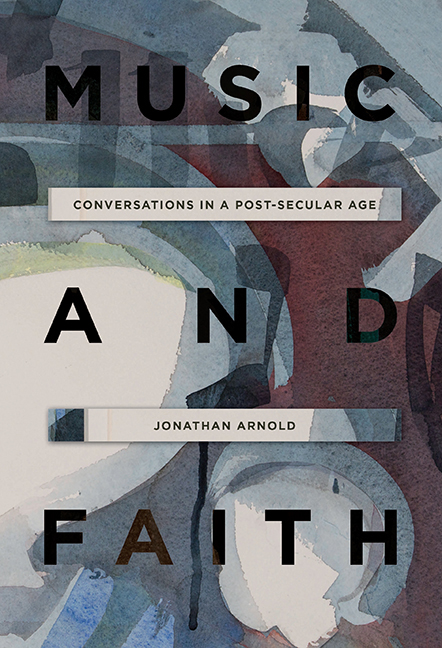Book contents
- Frontmatter
- Dedication
- Contents
- List of Illustrations
- List of Interviewees
- Preface
- Acknowledgements
- Introduction: Faith, Belief and Post-Secularism
- I MEDIEVALISM TO POST-SECULARISM
- II THE HUMAN MIND AND SOCIETY
- 4 Singing in Synchrony: Music, Bonding and Human Evolution
- 5 ‘Fear of the Mystery’: Music, Faith and the Brain
- 6 Music and Faith under Persecution
- Interlude II. An Echo of the Spheres in the Shires: The Enduring Appeal of Sacred Music at the Three Choirs Festival
- III BELIEF AND UNBELIEF
- Conclusion
- Notes
- Bibliography
- Index
6 - Music and Faith under Persecution
from II - THE HUMAN MIND AND SOCIETY
Published online by Cambridge University Press: 01 September 2019
- Frontmatter
- Dedication
- Contents
- List of Illustrations
- List of Interviewees
- Preface
- Acknowledgements
- Introduction: Faith, Belief and Post-Secularism
- I MEDIEVALISM TO POST-SECULARISM
- II THE HUMAN MIND AND SOCIETY
- 4 Singing in Synchrony: Music, Bonding and Human Evolution
- 5 ‘Fear of the Mystery’: Music, Faith and the Brain
- 6 Music and Faith under Persecution
- Interlude II. An Echo of the Spheres in the Shires: The Enduring Appeal of Sacred Music at the Three Choirs Festival
- III BELIEF AND UNBELIEF
- Conclusion
- Notes
- Bibliography
- Index
Summary
Music … will help dissolve your perplexities and purify your character and sensibilities, and in time of care and sorrow, will keep a fountain of joy alive in you.
The former Chief Rabbi, Jonathan Sacks, has stated that ‘religion isn't born in someone's bright idea. Religion is born in collective pain.’ If the pain becomes too severe, someone will emerge to lead a new religion forward:
People find themselves wandering through a desperately cruel, random universe, where a few people flourish and many people don't. A cry goes out and someone comes along and finds a way of reaffirming human dignity and reigniting human hope.
Sacks considers that the Western world has not yet reached such a place of despair, but that it will: ‘We in the West have not yet reached that cry of pain but we may in the predictable future.’ One society that did reach that cry of pain was pre-revolutionary Russia. The uprising of 1917 and the communist era that followed did not give birth to a religion but a political ideology that sought to crush all faith practices. What then happened to people's Christian faith and the culture that went with it? Was it extinguished? Quite the reverse.
We have considered how music has played a fundamental role in human evolution and neurological development. We have seen how music is a universal characteristic of human existence, experience, encounter and relationships. In the third chapter in this part of the book, I explore how the relationship between music and faith has endured, even in the most hostile circumstances in recent European history, including the rise of communism in Russia and Eastern Europe. As Michael Bourdeaux has written, religion, and sacred music with it, were intended to be extinguished by Marxist and Leninist ideology:
The catastrophic experiment forcibly to impose ‘state atheism’ (gosateizm) in the Soviet Union lasted just 70 years. Until Lenin's first decree on the Separation of Church and State of January 1918, no government in history had sought to impose a system which rejected all forms of religion.
- Type
- Chapter
- Information
- Music and FaithConversations in a Post-Secular Age, pp. 128 - 156Publisher: Boydell & BrewerPrint publication year: 2019



